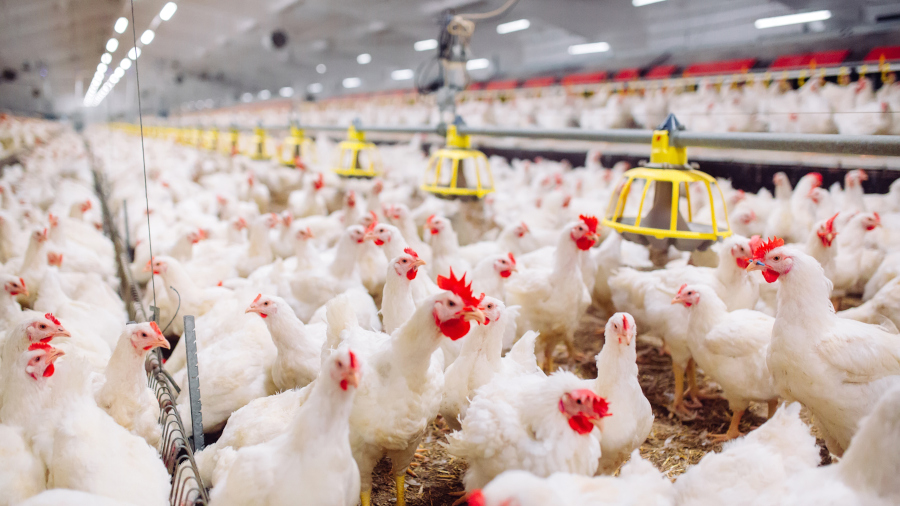Phage therapy against Salmonella in broilers: limited emergence of phage-resistant variants

Researchers from the Department of Genetics and Microbiology at the UAB, led by Dr. Montserrat Llagostera, have published a landmark study investigating the potential of phage therapy to combat Salmonella enterica serovar Infantis in broiler chickens using the commercial phage cocktail PhagoVet. This product was developed in the framework of a H2020 Fast Track to Innovation Research Project (No 820523) involving UAB, and ALS, Vetworks, and CECAV companies.
Multidrug-resistant S. Infantis poses an increasing threat to the poultry industry, with implications for both animal and human health. In this study, the researchers assessed the efficacy of PhagoVet, administered orally to broiler chickens challenged with S. Infantis, while closely monitoring the emergence of S. Infantis variants with reduced susceptibility to phage treatment.
The bacteriophages composing PhagoVet product were characterised using transmission electron microscopy, genome sequencing and infection profiling, demonstrating a broad host range against 18 Salmonella serovars. Two animal trials mimicking real conditions were conducted using different concentrations of both Salmonella and PhageVet product. The findings are promising for the poultry sector, as PhagoVet treatment significantly reduced S. Infantis levels in the broilers’ faeces, with minimal emergence of reduced-phage-susceptibility variants.
The limited development of phage-resistant Salmonella strains is a significant finding, addressing concerns about the long-term viability of phage therapy. Unlike antibiotics, phages specifically target harmful bacteria without disrupting beneficial microorganisms, making them a promising tool for reducing zoonotic pathogens like Salmonella. The study’s success in curbing bacterial growth without fostering resistance reinforces the case for phage therapy as a sustainable solution for maintaining poultry health and ensuring food safety.
This research aligns with global initiatives to reduce antibiotic use in livestock, as the overuse of antibiotics in the agrifood sector has been linked to the rise of antibiotic-resistant bacteria. The study provides strong evidence supporting the use of phage cocktails such as PhagoVet to control harmful bacteria in broilers while mitigating the risk of bacterial-resistance development. This could contribute to healthier poultry production and safer food supplies, ultimately enhancing consumer confidence in food safety.
Departament of Genetics and Microbiology
Universitat Autònoma de Barcelona
References
Sevilla-Navarro S, Otero J, López-Pérez J, Torres-Boncompte J, Prucha T, De Gussem M, Silva D, Burgan J, Catalá-Gregori P, Cortés P, Llagostera M. Limited Emergence of Salmonella enterica Serovar Infantis Variants with Reduced Phage Susceptibility in PhagoVet-Treated Broilers. Animals. 2024; 14(16):2352. https://doi.org/10.3390/ani14162352.

